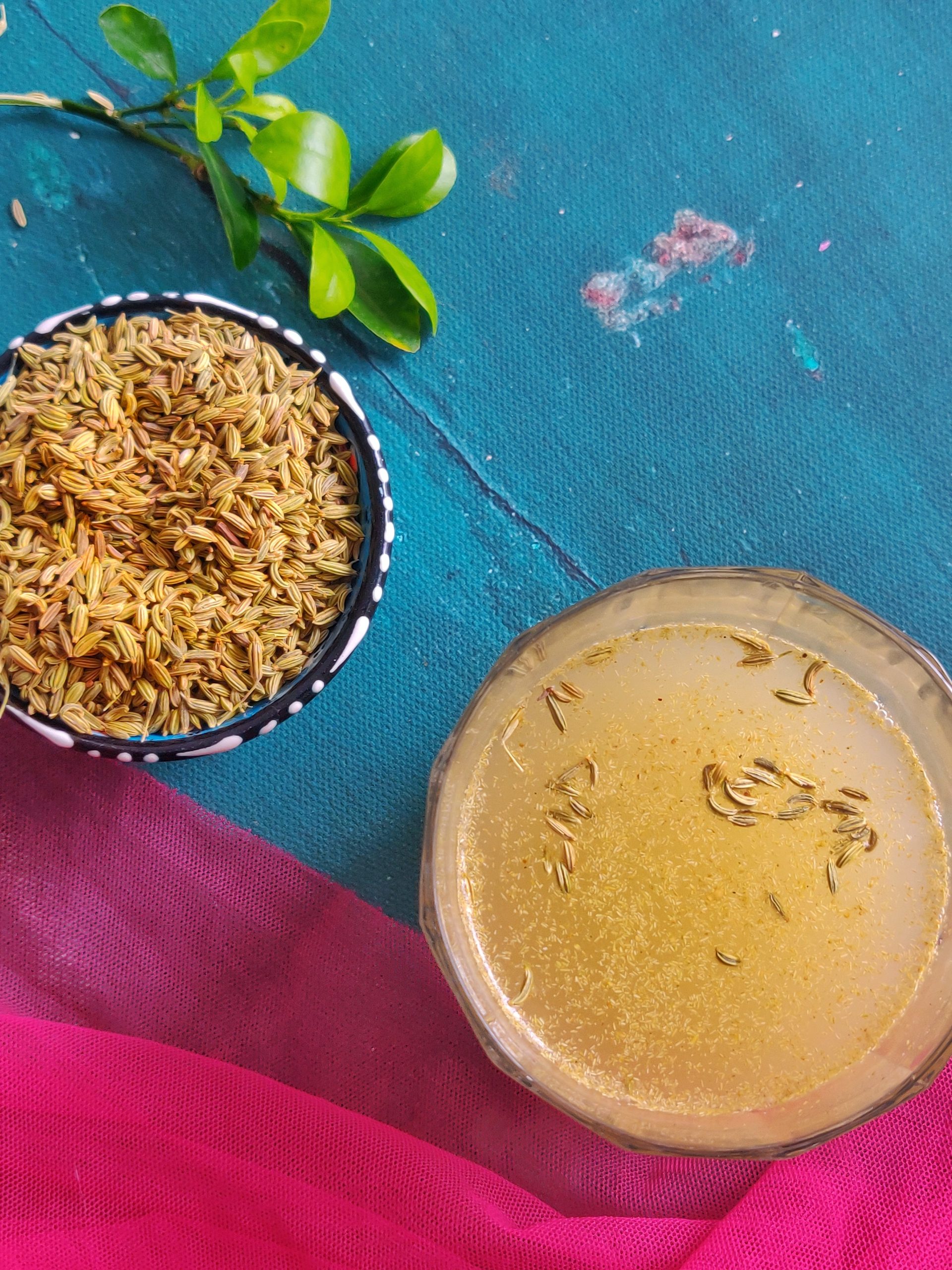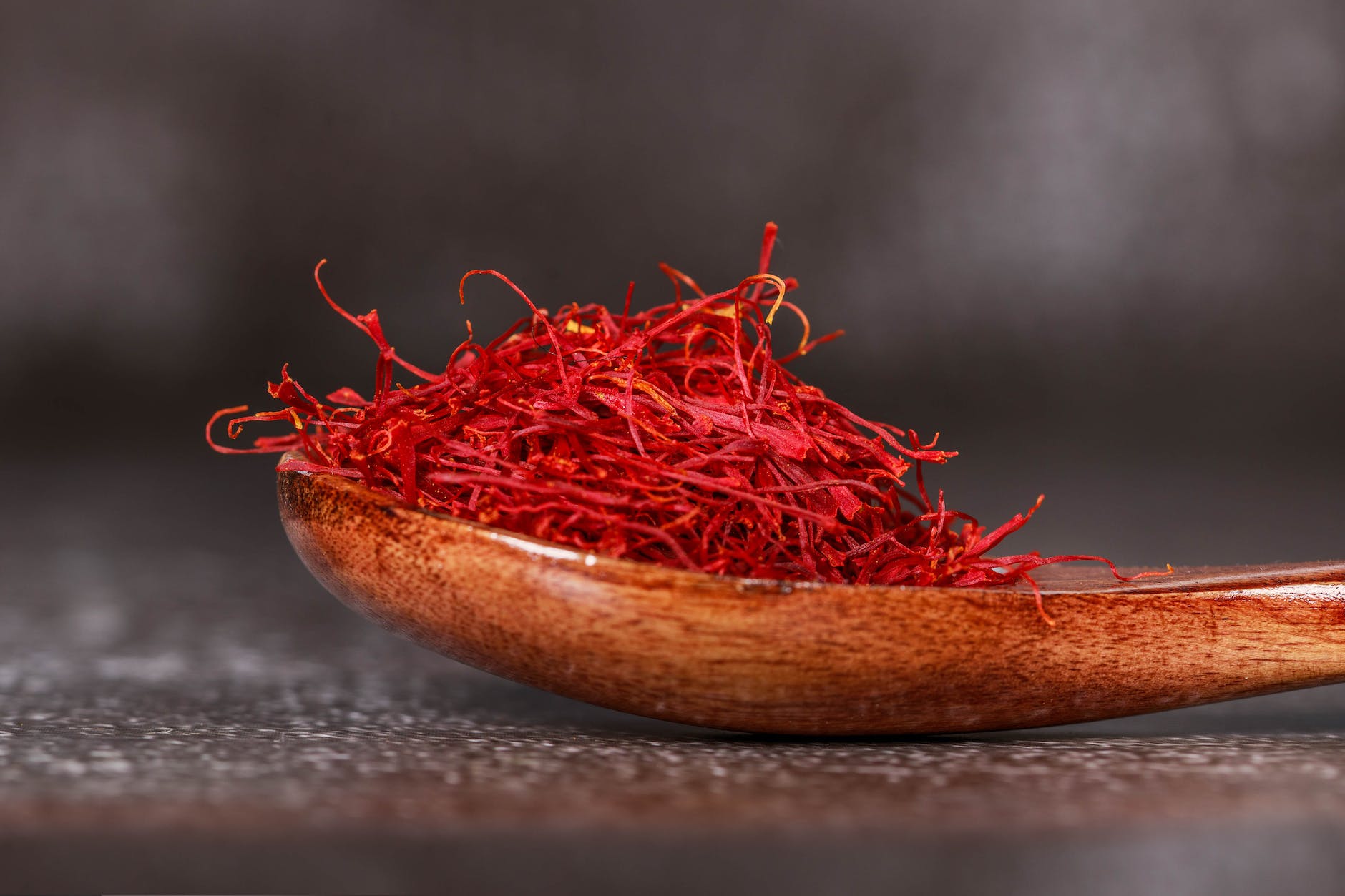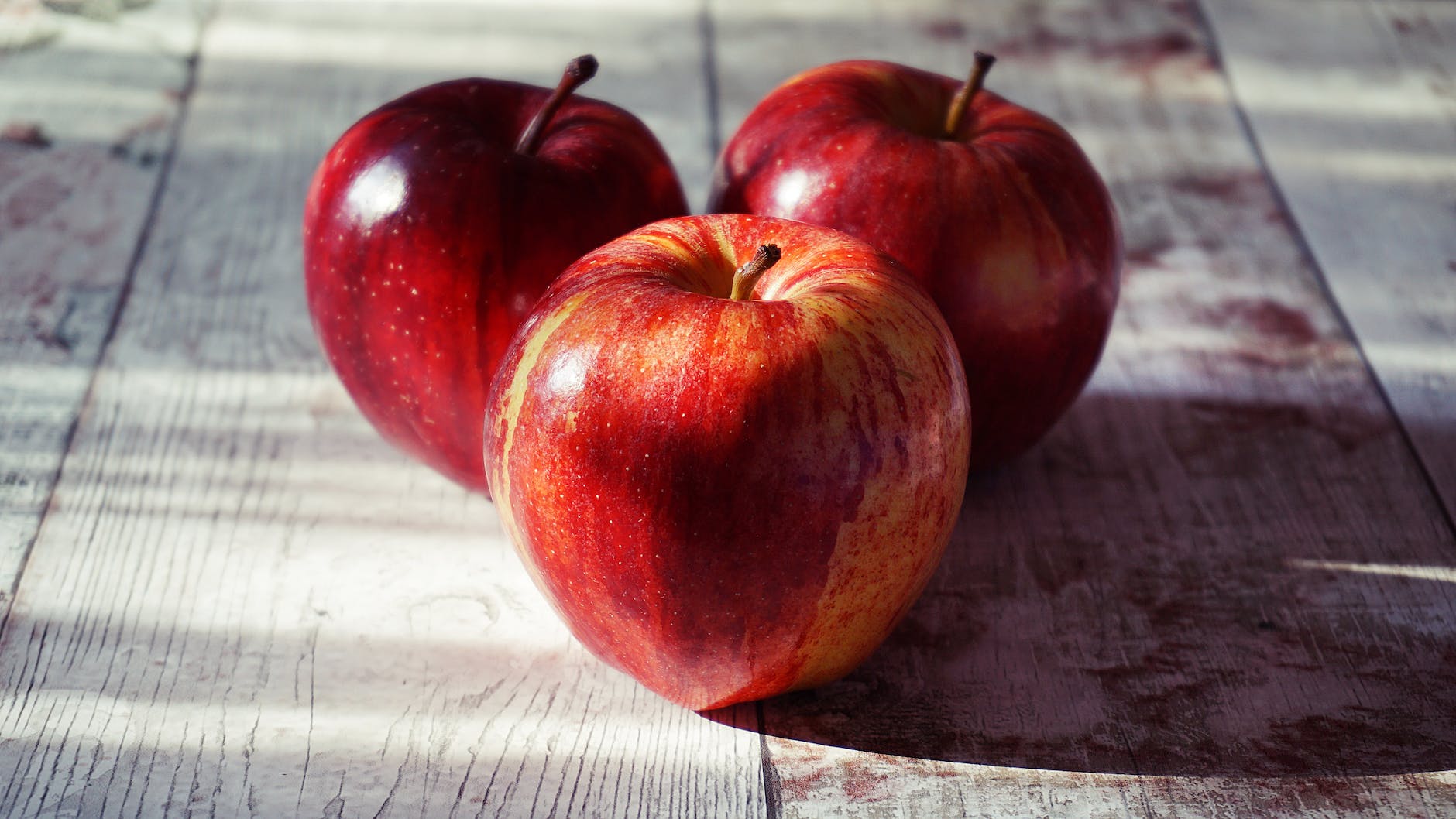
Pineapple juice, a tropical delight packed with nutrients, has been a favorite among health enthusiasts for years. Its sweet, tangy flavor is not the only reason for its popularity. The health benefits associated with pineapple juice are vast, ranging from boosting immunity to promoting digestion. This article aims to explore these benefits in detail, providing you with a comprehensive guide on the health secrets of pineapple juice.
The Nutritional Powerhouse: Benefits of Pineapple Juice
Pineapple juice is a nutritional powerhouse, loaded with a variety of vitamins, minerals, and antioxidants.
Vitamins and Minerals
- Vitamin C: One cup of unsweetened pineapple juice provides more than 100% of the daily recommended intake of vitamin C, a potent antioxidant that boosts immunity and promotes skin health.
- Manganese: It’s also a good source of manganese, a mineral essential for bone health and metabolism.
Bromelain
In addition to these, pineapple juice contains a unique enzyme called bromelain. Bromelain is known for its anti-inflammatory properties and its ability to break down proteins, which can aid digestion. It’s also been studied for its potential effects on sinus congestion, wound healing, and even cancer prevention.
Other Beneficial Compounds
Pineapple juice is also rich in other beneficial compounds:
- Beta-carotene and Vitamin A: These are essential for eye health.
- B-vitamins: It contains a decent amount of B-vitamins, like folate and thiamine, which are crucial for energy production and brain function.
Hydration
Pineapple juice is hydrating, with its high water content and a good amount of electrolytes, like potassium. This makes it a great choice for maintaining fluid balance in the body, especially during hot summer months or post-workout.
However, while pineapple juice is nutritious, it’s also high in natural sugars and should be consumed in moderation. It’s best to opt for 100% pineapple juice with no added sugars to reap the maximum health benefits.
In the following sections, we will delve deeper into the specific health benefits of pineapple juice, exploring its impact on various aspects of health, from diabetes management to weight loss and beyond.
Advantages of Pineapple Juice for Diabetes
Pineapple juice, when consumed in moderation, can be a part of a healthy diet for people with diabetes. However, it’s important to note that pineapple juice contains natural sugars and should be consumed in controlled portions.
Natural Sugars and Glycemic Index
Pineapple juice has a medium glycemic index (GI), which means it can have a moderate impact on blood sugar levels. However, the fiber in pineapple juice can help slow the absorption of sugar and prevent spikes in blood glucose.
Vitamin C and Diabetes
Pineapple juice is rich in vitamin C, a powerful antioxidant that can play a role in managing diabetes. Some research suggests that vitamin C can help reduce levels of fasting blood sugar and other diabetes markers.
Bromelain and Inflammation
The bromelain in pineapple juice is known for its anti-inflammatory properties. Chronic inflammation is often linked to the development of diabetes, so incorporating anti-inflammatory foods and drinks, like pineapple juice, may be beneficial.
Hydration and Blood Sugar Control
Staying hydrated is crucial for blood sugar control, and pineapple juice can contribute to daily fluid intake. However, water should be the primary source of hydration for individuals with diabetes.
Remember, while pineapple juice has potential benefits for people with diabetes, it should be consumed as part of a balanced diet and not as a standalone treatment for diabetes. Always consult with a healthcare provider or a dietitian for personalized advice.
In the next section, we’ll explore how pineapple juice can support weight loss efforts.
Pineapple Juice for Weight Loss: A Sweet Ally
Pineapple juice can be a tasty addition to a weight loss diet, thanks to its nutritional profile and potential health benefits. However, it’s important to remember that no single food or drink can cause weight loss on its own. A balanced diet and regular physical activity are key.
Low in Calories, High in Nutrients
Pineapple juice is relatively low in calories yet provides many essential nutrients. This makes it a nutrient-dense choice that can help you feel satisfied without consuming excessive calories.
Hydration and Weight Management
Staying well-hydrated is crucial for weight management, and pineapple juice can contribute to your daily fluid intake. However, it’s important to balance your intake of pineapple juice with plenty of water, as juice is higher in sugar and calories.
Bromelain and Digestion
The bromelain in pineapple juice may aid digestion, which is important for weight management. Good digestion helps your body absorb nutrients, eliminate waste, and even regulate your appetite.
Fiber and Fullness
While pineapple juice isn’t as high in fiber as whole pineapple, it still contains some fiber. Fiber can help you feel full, reducing the likelihood of overeating.
Remember, while pineapple juice can be part of a weight loss diet, it’s important to consume it in moderation due to its sugar content. Pair it with a balanced diet and regular exercise for the best results.
In the next section, we’ll delve into the benefits of pineapple juice for inflammation and respiratory health.
Pineapple Juice: A Natural Remedy for Inflammation and Respiratory Health
Pineapple juice is not just a refreshing drink. It’s also packed with compounds that may help reduce inflammation and support respiratory health. Here’s how:
Bromelain: A Natural Anti-Inflammatory Agent
Pineapple juice is rich in bromelain, an enzyme that has been studied for its anti-inflammatory and analgesic properties. It may help reduce inflammation in the body, which is linked to many chronic diseases, including heart disease and cancer.
Pineapple Juice for Cough and Asthma
The bromelain in pineapple juice may also help with respiratory problems. It’s been used traditionally as a remedy for cough and mucus build-up. Some research suggests that bromelain may help reduce mucus and phlegm build-up in the sinuses and respiratory tract.
For people with asthma, pineapple juice might be a beneficial addition to their diet. The vitamin C in pineapple juice can help support the immune system and fight against free radicals that can trigger asthma attacks.
Hydration and Respiratory Health
Staying hydrated is important for maintaining healthy mucus membranes in the respiratory tract. Pineapple juice, with its high water content, can contribute to daily fluid intake and help keep these membranes healthy.
Remember, while pineapple juice can support respiratory health, it should not replace medical treatment for respiratory conditions. Always consult with a healthcare provider for personalized advice.
In the next section, we’ll explore the potential benefits of pineapple juice for digestive health.
Benefits of Pineapple Juice for Digestive Health
Pineapple juice is not only a delicious tropical drink but also a potential ally for digestive health. Let’s delve into how pineapple juice can benefit your digestive system:
Bromelain: A Digestive Enzyme
One of the key components of pineapple juice is bromelain, a mixture of enzymes that can aid digestion. Bromelain is known for its ability to break down proteins, which can help improve the digestion of protein-rich foods.
Reducing Bloating and Gas
The bromelain in pineapple juice may also help reduce bloating and gas. It can assist in breaking down complex carbohydrates, which can be difficult for some individuals to digest, leading to bloating and discomfort.
Anti-Inflammatory Benefits for the Gut
In addition to its digestive enzyme properties, bromelain has anti-inflammatory effects that can benefit the gastrointestinal (GI) tract. It may help reduce inflammation in the gut, which is beneficial for individuals with conditions like inflammatory bowel disease (IBD) or irritable bowel syndrome (IBS).
Promoting Regular Bowel Movements
Pineapple juice contains dietary fiber, which is essential for maintaining regular bowel movements. Adequate fiber intake can help prevent constipation and promote overall digestive health.
Supporting Gut Microbiota
Pineapple juice contains prebiotics, which are compounds that support the growth of beneficial gut bacteria. A healthy gut microbiota is essential for optimal digestion and overall well-being.
Hydration and Digestion
Proper hydration is vital for healthy digestion. Pineapple juice, with its high water content, can contribute to maintaining adequate hydration levels.
While pineapple juice can offer digestive benefits, it’s essential to consume it in moderation and as part of a balanced diet. Excessive consumption of pineapple juice may lead to stomach discomfort due to its acidity and natural sugars.
In the next section, we’ll explore the potential advantages of pineapple juice for skin health and its role in promoting a radiant complexion.
is Pineapple Juice good for Skin?
Pineapple juice is not just a delightful drink; it may also play a role in enhancing your skin health. The following are ways in which pineapple juice can contribute to a radiant complexion:
Vitamin C: An Antioxidant Powerhouse
Pineapple juice is abundant in vitamin C, a potent antioxidant that can protect the skin from oxidative stress caused by free radicals. Vitamin C supports collagen production, which is essential for maintaining skin elasticity and reducing the appearance of fine lines and wrinkles.
Anti-Aging Benefits
Thanks to its antioxidant properties, vitamin C in pineapple juice may help combat the signs of aging. Regular consumption of pineapple juice can contribute to a youthful and vibrant appearance.
Hydration for Glowing Skin
Hydrated skin is healthy skin. Pineapple juice, with its high water content, can help keep your skin hydrated, giving it a radiant and glowing look.
Bromelain for Skin Health
Apart from vitamin C, pineapple juice also contains bromelain, which may offer benefits for skin health. Bromelain has anti-inflammatory properties that can soothe irritated skin and promote a clearer complexion.
Boosting Collagen Production
Collagen is crucial for maintaining skin elasticity and firmness. The vitamin C and bromelain in pineapple juice may support collagen synthesis, aiding in maintaining skin’s youthful appearance.
Reducing Skin Blemishes
The natural enzymes in pineapple juice may help exfoliate the skin, which can assist in reducing the appearance of blemishes and promoting a smoother skin texture.
Nutrient-Rich Hydration
In addition to vitamin C, pineapple juice also contains essential vitamins and minerals, such as vitamin A, vitamin K, calcium, and manganese. These nutrients contribute to overall skin health and vitality.
While pineapple juice can provide benefits for your skin, it’s essential to incorporate it into a balanced diet and skincare routine. Remember to consult with a dermatologist or skincare expert for personalized advice on achieving your desired skin goals.
In the next section, we’ll explore the potential advantages of pineapple juice for kidney health and its role in supporting kidney function.
Pineapple Juice and Kidney Health: is it any good?
Pineapple juice may offer some potential benefits for kidney health. Let’s explore how this tropical beverage can contribute to the well-being of your kidneys:
Hydration for Kidney Function
Staying well-hydrated is essential for maintaining healthy kidney function. Adequate fluid intake can help your kidneys effectively filter waste and toxins from the blood. Pineapple juice, with its high water content, can be a refreshing way to support proper hydration.
Natural Source of Vitamins and Minerals
Pineapple juice is a natural source of essential vitamins and minerals, including vitamin C, manganese, and potassium. These nutrients play a vital role in supporting kidney health and function.
Potassium and Blood Pressure
Pineapple juice contains potassium, a mineral that can help regulate blood pressure. Maintaining healthy blood pressure levels is essential for kidney health, as high blood pressure can strain the kidneys over time.
Reducing Kidney Stones Risk
Pineapple juice is believed to have properties that may help reduce the risk of kidney stone formation. The citric acid and bromelain in pineapple juice may assist in dissolving certain types of kidney stones and prevent their development.
Anti-Inflammatory Effects
The bromelain in pineapple juice has anti-inflammatory properties that may benefit kidney health. Chronic inflammation can contribute to kidney damage, and reducing inflammation may help protect the kidneys from harm.
Supporting Kidney Filtration
The bromelain in pineapple juice may help support the kidneys’ filtration process by reducing inflammation in the nephrons, the functional units of the kidneys responsible for filtering the blood.
Balancing Electrolytes
Pineapple juice’s mineral content, including potassium and sodium, can help balance electrolyte levels in the body. Proper electrolyte balance is crucial for kidney function and overall health.
While pineapple juice can complement a kidney-friendly diet, individuals with kidney disease or other kidney-related issues should consult with a healthcare provider or registered dietitian before making significant dietary changes.
In the next section, we’ll explore the potential benefits of pineapple juice for heart health and its role in promoting cardiovascular well-being.
Benefits of Pineapple Juice for Heart Health
Pineapple juice is not just a tasty treat; it may also provide some advantages for heart health. Here’s how pineapple juice can be a refreshing boost for your cardiovascular system:
Promoting Healthy Blood Pressure
Pineapple juice contains potassium, a mineral that plays a key role in regulating blood pressure. Adequate potassium intake is associated with lower blood pressure levels, reducing the risk of hypertension and cardiovascular complications.
Reducing Bad Cholesterol
The soluble fiber found in pineapple juice can help lower LDL cholesterol levels, often referred to as “bad cholesterol.” High LDL cholesterol levels can contribute to the development of atherosclerosis and increase the risk of heart disease.
Rich in Antioxidants
Pineapple juice is a rich source of antioxidants, including vitamin C and bromelain. Antioxidants can protect the heart and blood vessels from oxidative stress, reducing the risk of cardiovascular disease.
Supporting Heart Function
The bromelain in pineapple juice may have antiplatelet properties, which means it may help prevent the formation of blood clots. This can be beneficial for individuals at risk of heart attacks and strokes.
Reducing Inflammation
Chronic inflammation is a significant risk factor for heart disease. The anti-inflammatory properties of bromelain can help reduce inflammation in the cardiovascular system, promoting heart health.
Hydration and Heart Health
Proper hydration is essential for maintaining cardiovascular health. Pineapple juice’s high water content can contribute to overall hydration, benefiting the heart and blood vessels.
Vitamins and Minerals for Heart Health
In addition to potassium and vitamin C, pineapple juice contains essential vitamins and minerals that support heart health, including vitamin A and manganese.
While pineapple juice can complement a heart-healthy diet, it’s essential to consume it as part of a balanced and varied diet. Limit added sugars in pineapple juice and opt for fresh or natural pineapple juice whenever possible.
In the next section, we’ll explore the potential benefits of pineapple juice for weight management and its role in supporting a healthy weight.
Pineapple Juice for Weight Loss
If you’re looking to manage your weight, pineapple juice can be a delicious and nutritious addition to your diet. Here’s how pineapple juice can support your weight management goals:
Low in Calories and Fat
Pineapple juice is naturally low in calories and fat, making it a guilt-free beverage option for those watching their calorie intake.
Rich in Fiber
Pineapple juice contains dietary fiber, which can promote feelings of fullness and satiety. Including fiber-rich foods in your diet can help you feel more satisfied after meals, potentially reducing overall calorie consumption.
Natural Sweetness
Pineapple juice’s natural sweetness can satisfy your sweet cravings without the need for added sugars or artificial sweeteners. It’s a refreshing alternative to sugary beverages that can contribute to weight gain.
Hydration and Weight Management
Staying hydrated is essential for maintaining a healthy weight. Drinking pineapple juice, with its high water content, can help you stay hydrated throughout the day.
Nutrient-Rich Profile
In addition to fiber, pineapple juice is rich in essential vitamins and minerals that support overall health. Nourishing your body with essential nutrients can help you feel more energized and motivated to engage in physical activity.
Boosting Metabolism
Pineapple juice contains manganese, a trace mineral that plays a role in metabolism and energy production. A well-functioning metabolism is crucial for weight management.
Incorporating Pineapple Juice into Your Diet
There are various ways to enjoy pineapple juice as part of your weight management journey. You can drink it as a refreshing beverage, blend it into smoothies with other fruits and vegetables, or use it as a base for homemade popsicles.
Balanced Diet and Exercise
While pineapple juice can be a beneficial addition to your diet, it’s essential to remember that weight management is a holistic process. Along with incorporating pineapple juice into your routine, focus on maintaining a balanced diet and engaging in regular physical activity.
In the next section, we’ll explore the potential benefits of pineapple juice for digestion and its role in promoting a healthy gut.
Pineapple Juice and Benefits of Gut & Digestive Health
Pineapple juice is not only a delicious tropical beverage but also a potential ally for digestive health. Let’s explore how pineapple juice can support your gut:
Rich in Digestive Enzymes
One of the key benefits of pineapple juice is its bromelain content. Bromelain is a group of enzymes known for their digestive properties. These enzymes can help break down proteins and facilitate the digestion process, leading to better nutrient absorption.
Alleviating Digestive Discomfort
Due to its bromelain content, pineapple juice may help alleviate digestive discomfort, such as bloating and indigestion. The enzymes in pineapple juice can assist in the breakdown of complex foods, promoting smoother digestion.
Fiber Content for Bowel Regularity
Pineapple juice contains dietary fiber, which is essential for bowel regularity. Consuming fiber-rich foods, like pineapple juice, can help prevent constipation and support a healthy digestive system.
Natural Source of Prebiotics
Prebiotics are non-digestible fibers that promote the growth and activity of beneficial gut bacteria. Pineapple juice’s fiber content can act as a prebiotic, nourishing the gut microbiota and contributing to gut health.
Anti-Inflammatory Effects
The bromelain in pineapple juice may also have anti-inflammatory properties, which can benefit the digestive system. Reducing inflammation in the gut can help alleviate digestive discomfort and promote overall digestive wellness.
Hydration and Digestion
Staying hydrated is essential for optimal digestion. Pineapple juice’s high water content can aid in maintaining adequate hydration levels, supporting the smooth functioning of the digestive tract.
Gut Health and Overall Well-Being
A healthy gut is crucial for overall well-being. By supporting digestion and maintaining a balanced gut microbiome, pineapple juice can contribute to your overall health and vitality.
Incorporating Pineapple Juice into Your Diet
To enjoy the digestive benefits of pineapple juice, consider incorporating it into your daily diet. You can have a glass of pineapple juice with meals or use it as a base for gut-friendly smoothies.
While pineapple juice can offer digestive benefits, it’s essential to listen to your body’s unique needs. If you have any specific digestive concerns or conditions, consult with a healthcare provider or registered dietitian for personalized advice.
Benefits of Pineapple Juice for Women’s Health
Pineapple juice offers various potential benefits for women’s health, addressing aspects such as menstrual health, sexual health, hormone balance, and fertility. Let’s explore how pineapple juice can be a nourishing and supportive addition to a woman’s diet:
Promoting Menstrual Health
Pineapple juice’s bromelain content may have anti-inflammatory properties that could help alleviate menstrual cramps and discomfort. Its vitamin C content can also support overall menstrual health.
Boosting Fertility
The antioxidants and nutrients in pineapple juice, including vitamin C, manganese, and folic acid, may play a role in supporting reproductive health and fertility.
Balancing Hormones
Pineapple juice’s nutrient profile, particularly vitamin C, may aid in hormone balance and regulation. Balanced hormones are essential for overall well-being and reproductive health.
Enhancing Sexual Health
The potential anti-inflammatory and antioxidant effects of pineapple juice may contribute to improved blood flow, which could positively impact sexual health and arousal.
Supporting Immune Health
A healthy immune system is crucial for overall health, and pineapple juice’s vitamin C content can play a role in supporting immune function.
Maintaining Hydration
Proper hydration is essential for overall health, including reproductive and urinary health. Drinking pineapple juice can help maintain adequate hydration levels.
Antioxidant Benefits
Pineapple juice is a rich source of antioxidants, which can protect cells from oxidative stress and may have positive effects on skin health and aging.
Incorporating Pineapple Juice into Your Diet
To reap the potential benefits of pineapple juice for women’s health, consider incorporating it into your diet. You can enjoy a refreshing glass of pineapple juice or use it as a base for smoothies and fruit salads.
As with any dietary change, it’s essential to consume pineapple juice as part of a balanced and varied diet. If you have specific health concerns or conditions, consult with a healthcare provider or registered dietitian for personalized guidance.
Is Drinking Pineapple Juice Before Bed a Good Idea? Considering Sleep and Relaxation
Drinking pineapple juice before bed may have some potential benefits for sleep and relaxation, but there are also considerations to keep in mind. Let’s explore the potential pros and cons of consuming pineapple juice before bedtime:
Potential Sleep Benefits
Pineapple juice contains vitamins and minerals, such as vitamin C and manganese, which are involved in serotonin production. Serotonin is a neurotransmitter that can promote feelings of relaxation and may contribute to improved sleep quality.
Hydration and Sleep
Staying hydrated is important for overall health, and having a glass of pineapple juice before bed can contribute to maintaining hydration levels throughout the night.
Natural Source of Sugar
Pineapple juice contains natural sugars, which can provide a quick energy boost. However, consuming sugary beverages before bed may not be ideal for some individuals, especially those with blood sugar concerns.
Considerations for Acid Reflux
For individuals with acid reflux or gastroesophageal reflux disease (GERD), drinking acidic beverages like pineapple juice before bed may trigger symptoms or disrupt sleep.
Caffeine Content
Pineapple juice does not contain caffeine, which is beneficial for those seeking caffeine-free bedtime beverages.
Personal Tolerance
Each individual’s response to pineapple juice before bed may vary. Some may find it relaxing, while others may experience discomfort or disrupted sleep.
Incorporating Pineapple Juice into Bedtime Routine
If you enjoy pineapple juice before bed and it doesn’t negatively affect your sleep, you can continue incorporating it into your bedtime routine. However, if you experience any discomfort or sleep disturbances, consider having pineapple juice earlier in the evening or as part of your daytime routine.
As with any dietary change, listen to your body and adjust your habits to suit your individual needs. If you have specific sleep concerns or health conditions, consult with a healthcare provider for personalized advice.
Potential Side Effects of Pineapple Juice
While pineapple juice offers many potential health benefits, it’s essential to be aware of possible side effects, especially for individuals with specific allergies or those taking certain medications. Let’s explore the potential side effects of pineapple juice:
Allergic Reactions
Some individuals may be allergic to pineapples or have sensitivities to bromelain, the enzyme found in pineapple juice. Allergic reactions may include itching, swelling, hives, or gastrointestinal discomfort. If you experience any adverse reactions after consuming pineapple juice, discontinue use and seek medical attention if necessary.
Gastrointestinal Upset
Pineapple juice’s acidity may cause gastrointestinal upset or heartburn, especially when consumed in large quantities or on an empty stomach. Individuals with acid reflux or GERD should be cautious when consuming acidic beverages like pineapple juice.
Interactions with Medications
Bromelain in pineapple juice may interact with certain medications, including blood thinners and antibiotics. If you are taking any medications, consult with your healthcare provider to ensure that consuming pineapple juice will not interfere with their effectiveness.
Tooth Enamel Erosion
Due to its acidity, frequent consumption of pineapple juice may contribute to tooth enamel erosion. Consider rinsing your mouth with water after consuming acidic beverages to minimize the potential impact on tooth health.
Moderation and Personal Tolerance
As with any food or beverage, moderation is key. If you enjoy pineapple juice and tolerate it well, you can include it as part of a balanced diet. However, if you experience any adverse effects, reduce your intake or avoid it altogether.
It’s essential to pay attention to your body’s response to pineapple juice and make informed decisions based on your individual health needs. If you have specific health concerns or conditions, consult with a healthcare provider for personalized advice.
FAQs: Pineapple Juice and Health
1. Is Pineapple Good for Diabetes Type 2?
While pineapple can be enjoyed as part of a balanced diet, individuals with diabetes should consume it in moderation due to its natural sugar content. It’s essential for those with diabetes to monitor their carbohydrate intake and work with a healthcare provider or registered dietitian to create a suitable meal plan.
2. Is Canned Pineapple Good for Diabetics?
Canned pineapple may contain added sugars, so it’s best for individuals with diabetes to opt for fresh or frozen pineapple without added sweeteners.
3. Can Pineapple Juice Benefit Female Health, Including Menstrual Health?
Pineapple juice’s bromelain content may have anti-inflammatory properties that could help alleviate menstrual cramps and discomfort. Its vitamin C content can also support overall menstrual health.
4. Is Pineapple Juice Good for Weight Loss?
Pineapple juice can be a refreshing and low-calorie beverage choice. However, it’s essential to remember that weight loss is best achieved through a combination of a balanced diet and regular physical activity.
5. Is Pineapple Good for Inflammation?
Pineapple contains bromelain, an enzyme with potential anti-inflammatory properties. Including pineapple in your diet may contribute to overall anti-inflammatory benefits.
6. Is Pineapple Juice Good for Cough?
Pineapple juice’s vitamin C content may support immune health, which can be beneficial during cough and cold season.
7. Is Fresh Pineapple Good for Diabetics?
Fresh pineapple can be enjoyed in moderation by individuals with diabetes, but it’s essential to consider its natural sugar content and incorporate it into a balanced meal plan.
8. Can Pineapple Juice Be Good for Kidneys?
Pineapple juice’s antioxidant properties may contribute to overall kidney health. However, it’s essential to maintain overall hydration and consult with a healthcare provider for personalized dietary recommendations.
9. Is Pineapple Good for Your Liver?
Pineapple’s potential antioxidant and anti-inflammatory properties may contribute to overall liver health. However, maintaining a healthy liver requires a well-balanced diet and lifestyle habits.
10. Is Pineapple Good for Kidney Stones?
Pineapple is a source of citric acid, which may contribute to the prevention of certain types of kidney stones. However, individual responses may vary, and it’s essential to consider other dietary and lifestyle factors in kidney stone prevention.
11. Is Pineapple Juice Healthy?
Pineapple juice can be a part of a healthy diet when consumed in moderation. It provides essential nutrients like vitamin C and manganese.
12. Is Pineapple Juice Good for Asthma?
Some studies suggest that pineapple’s bromelain content may have anti-inflammatory properties that could be beneficial for individuals with asthma. However, it’s essential to consult with a healthcare provider for personalized asthma management strategies.
13. Is Pineapple Juice Good for COPD?
While pineapple’s bromelain content may have anti-inflammatory properties, it’s essential for individuals with chronic obstructive pulmonary disease (COPD) to follow a comprehensive treatment plan recommended by their healthcare provider.
14. Are Pineapples Good for Diabetes?
Pineapples can be enjoyed in moderation by individuals with diabetes, but portion control is crucial due to their natural sugar content.
15. Is Pineapple Good for Lungs?
Pineapple’s bromelain content may have anti-inflammatory properties that could be beneficial for lung health. However, it’s essential to prioritize overall lung health through healthy lifestyle choices.
16. Is Pineapple Juice Good for Diarrhea?
Pineapple juice’s bromelain content may have digestive benefits, but it’s essential to consult with a healthcare provider for personalized recommendations if experiencing diarrhea.
17. Is Pineapple Juice Safe During Pregnancy?
While pineapple juice can be consumed during pregnancy in moderation, it’s essential to consider its natural sugar content and include a variety of nutrient-dense foods in the diet.
18. Can Pineapple Juice Help Lower Blood Pressure?
Pineapple juice’s potassium content may have potential benefits for blood pressure regulation, but it’s essential to follow a comprehensive approach to manage blood pressure, including a balanced diet and lifestyle changes.
19. Does Pineapple Juice Have Medicinal Properties?
Pineapple juice contains vitamins, minerals, and antioxidants that contribute to its potential health benefits. However, it’s essential to remember that no single food or beverage can replace medical treatment or professional advice.
20. Is Pineapple Juice High in Sugar?
Pineapple juice naturally contains sugar, so it’s important to consume it in moderation, especially for individuals with diabetes or those watching their sugar intake.
Remember that individual responses to pineapple juice may vary, and it’s always best to consult with a healthcare provider or registered dietitian for personalized dietary advice based on your specific health needs.
Conclusion: Discover the Sweet Benefits of Pineapple Juice!
Pineapple juice packs a punch of nutrition and flavor, offering a myriad of potential health benefits. From its rich vitamin C content to the digestive-friendly bromelain enzyme, this tropical delight can be a refreshing addition to your diet. Embrace the sweetness and tanginess of pineapple as you savor its natural goodness, supporting your journey to a healthier and happier you! Remember to consult with a healthcare provider for personalized advice, and enjoy the vibrant taste of pineapple juice as part of a balanced lifestyle. Cheers to your well-being! 🍍🌟














